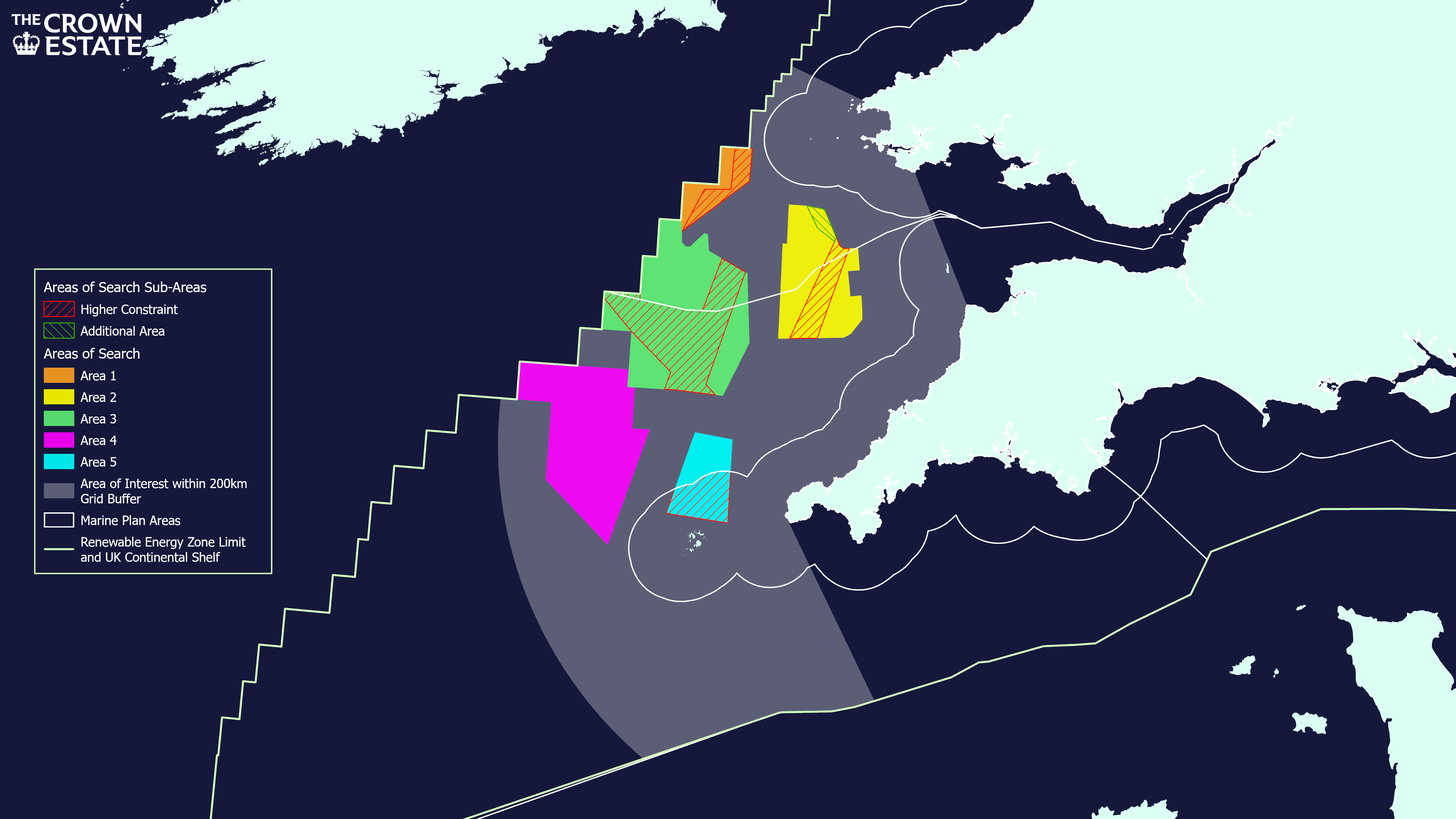Leasing details set to place Britain at the forefront of the world’s floating offshore power industry were set out today by the seabed’s oversight body.
Floating turbines anchored off south Wales and England’s south west offer potential to power four million homes, says national licencing authority the Crown Estate.
The licencing body today announced details of its plans addressed at offshore developers, specified in the fifth round of leasing the marine zones.
Round 5 will be the first time that floating turbines will have explicitly identified in a permit round seeking to deploy the technology at commercial scale.
As their deployment accelerates around the world, floating wind farms are expected to play an increasingly significant role in the global energy mix. Floating turbines can be anchored in deeper waters than familiar fixed-base turbines, harvesting stronger, more dependabpe air flows.
The Estate says its new approach to Round 5 of marine leasing include steps to de-risk the processes developers to follow and to accelerate projects’ deployment.
Improvements include a multi-million-pound programme of marine surveys aimed at clearer understanding of the physical and environmental properties around the locations of the new wind farms, as well as carrying out a Plan-Level Habitats Regulations Assessment early on in the process.
The Crown Estate is one of Britain’s property managers, administering land, sea and buildings worth £15.6 billion. It is tasked under law to create the best value it can for the nation and for future generations, including social, environmental and financial wealth.
The authority also outlined its intention to bring forward a new pilot fund to help accelerate supply chain projects, with an initial focus on opportunities arising from Round 5. Further details are expected to be set out in the first part of 2024.
Crown Estate chief executive Dan Labbad heralded Round 5 as a gamechanger, a culmination of years of talks with industry and other stakeholders in the sector.
“Floating wind is the next chapter in the exciting story of Britain’s offshore generation, backed up by recent support from the UK government”, Labbad said.
“Our role …means drawing on the skills, knowledge and input from our full range of stakeholders as we seek to play our part in responding to some of the biggest challenges, whether that’s climate change, nature loss or enabling economic growth.
Read further details here.




